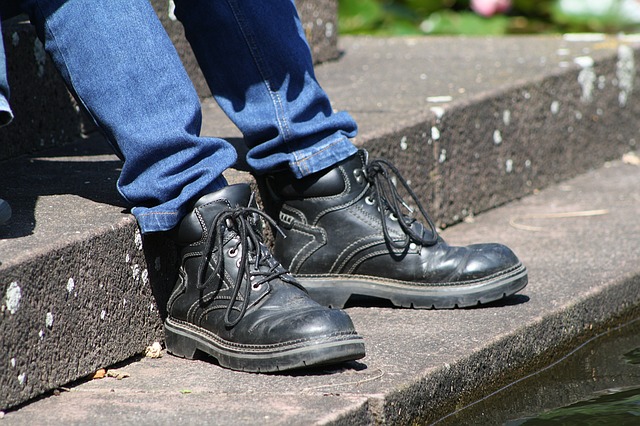Throughout the years, a stereotypical perception is that workplace fashion has shied away from embracing modern-day trends. Of course, for a while, this was true. In prior years, designers have battled to find the balance between practicality and style, with workers seeking more fluid and less one-dimensional workplace attire. Since the 1950s, however, fashion has seemingly come to the forefront, particularly regarding workwear safety shoes. So, let’s take a look at how workplace trends have changed during the past few decades.
Finding the Balance Between Style and Substance
As touched on above, integrating much-needed workplace protection into stylish designs hasn’t always been available. That said, during the 21st century, increasing numbers of brands have successfully blended both substance and style, with safety toe shoes being a leading example of the crossover. Given that safety is important to those working in industry and service sectors, workers can now buy steel toe safety shoes that embrace on-trend designs. Since the late 1940s, engelbert strauss has catered to the demands of trades workers through their production of sporty, protected workplace attire, such as the e.s. S3 Safety boots Spes mid, some of the most comfortable safety shoes. Their product lines range from workwear safety shoes to winter jackets, and much more.

What Are Safety Shoes?
Fundamentally, safety toe shoes are work-orientated products that serve to protect employees from injury in the workplace. To date, many designs come with steel toe caps that safeguard the welfare of feet by minimising the risk of being harmed by on-site hazards, such as falling items. Moreover, many of the products also feature ESD technology. Essentially, this means that their best safety shoes include electrostatic discharge material, which reduces the chances of receiving an electric shock.
What Are the Lightest Safety Shoes?
Give the heavily-protected nature of industry-designed shoes, the lightest designs come in at under 500g. The e.s. S1 Safety shoes Tegmen II low, for example, weigh in at 460 grams. For those seeking a lighter work safety shoe, consider a pair with an aluminium cap. Interestingly, this is because they weight 40 grams less than steel alternatives.
The Last 70 Years Have Inspired Widespread Change
Away from skilled-trades professions, workplace fashion as a whole has drastically changed since the late 20th century. In many ways, on-site trends now worn by industry and service workers are a microcosm of broader workplace styles. Similarly to on-site employees, those with an office-based occupation will also be sporting different looks in comparison to what was traditional 70 years ago. According to Business Insider, the reason for this is because style has become less formal since the 1950s. As such, this is why office workers can now wear casual uniforms, and on-site professionals can sport trendy workwear safety shoes.

Perhaps one reason for this more relaxed, stylish approach to workplace fashion across various industries relates to productivity. As per data from Hive, 61 per cent of employees were more efficient when working with a relaxed dress code. Furthermore, 80 per cent of workers employed in a company with a dress code didn’t find them at all beneficial.
What Does the Future Hold?
If the coming decades enjoy similar levels of change to the last 70 years, then workplace fashion is likely to become even less formal. Regarding industry workers, the potential for more stylish, health-driven products to hit the market is significant, thus ensuring a heightened sense of individuality.



 Bitcoin
Bitcoin  Ethereum
Ethereum  Tether
Tether  XRP
XRP  Solana
Solana  USDC
USDC  Cardano
Cardano  TRON
TRON  Lido Staked Ether
Lido Staked Ether  Avalanche
Avalanche  Toncoin
Toncoin